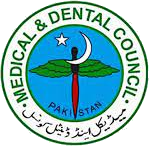Special Issue Policy
JUCMD aims to publish Special Issues that allow for in-depth exploration of important topics in medical and dental sciences. This policy outlines the procedures and criteria for proposing, approving, and managing special issues, in accordance with the standards set by COPE https://publicationethics.org/resources/forum-discussion-topics/special-issues-guest-editors, and by the Directory of Open Access Journals https://doaj.org/apply/guide/#special-issues
Proposal to Release a Special Issue
Unless directly approached by the editor-in-chief, request for a proposal to release a special issue may be submitted by senior researchers, faculty members, or professionals in the field of medical and dental sciences.
Proposal Components: The proposal for a special issue must include:
- Title of the special issue.
- Rationale and relevance to the journal’s scope.
- Proposed guest editors’ names and affiliations.
- A brief biography of the guest editors.
- A detailed description of the thematic focus and potential impact.
- submission deadline
- issue release deadline
Proposal Review and Approval
The Editorial Board will conduct an initial review of the proposal to ensure it aligns with the journal’s scope and objectives.
The proposal must meet the following criteria:
- Relevance to contemporary issues in medical and dental sciences.
- Potential to contribute significantly to the field.
- Alignment with the sustainable development goals of the WHO, particularly those pertinent to the Pakistani population.
- Feasibility and clarity of the thematic focus.
Decision: The Editorial Board will communicate the decision within four weeks of proposal submission. Proposals may be accepted, rejected, or returned for revision.
Special Issue Management
Role of Guest Editors https://www.elsevier.com/editor/role/guest/guide
Guest editors are responsible for:
- Coordinating the call for papers.
- Managing the peer review process, ensuring high-quality and unbiased reviews.
- Communicating with authors and reviewers in a timely manner.
- Ensuring adherence to the journal’s ethical standards and policies.
Submission and Peer Review
- All manuscripts must be submitted through the journal’s online submission system.
- Manuscripts will undergo the same rigorous peer review process as regular submissions.
- Guest editors must ensure that at least two independent reviewers evaluate each manuscript.
Guidelines for Short Communications in Special Issues
For a short communication, it is important to note that conducting original research is not a requirement in JUCMD. Instead, short communications should focus on providing concise and relevant information that contributes to the field, such as highlighting key findings, presenting novel ideas, or offering insightful commentary on existing research or practices. The emphasis is on delivering a clear and focused message that effectively conveys the significance of the information, relates it to existing knowledge, and discusses its implications in a coherent and easy-to-understand manner. These communications should provide value by enriching the current understanding and stimulating further discussion or investigation.
Publication Ethics
- All special issues must adhere to the journal’s publication ethics, including policies on plagiarism, data falsification, and conflict of interest.
- Guest editors and authors must disclose any potential conflicts of interest.
Editorial Oversight
- The Editor-in-Chief retains ultimate responsibility for the content and integrity of the special issue.
- The Editorial Board will provide oversight to ensure the special issue meets the journal’s quality standards.
Evaluation and Feedback
Post-Publication Evaluation:The journal will evaluate the impact of the special issue through metrics such as citations, downloads, and altmetrics.
Feedback from authors, reviewers, and readers will be solicited to improve future special issues.
Continuous Improvement:The policy and procedures for special issues will be reviewed periodically to ensure they remain aligned with best practices and the journal’s goals.
By implementing this policy, JUCMD aims to ensure the integrity, quality, and impact of its special issues, thereby contributing significantly to the field of medical and dental sciences.






